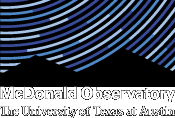Discovery of New Planet Reveals Distant Solar System to Rival Our Own
The discovery of an eighth planet circling the distant star Kepler-90 by University of Texas at Austin astronomer Andrew Vanderburg and Google’s Christopher Shallue overturns our solar system’s status as having the highest number of known planets. We're now in a tie.

